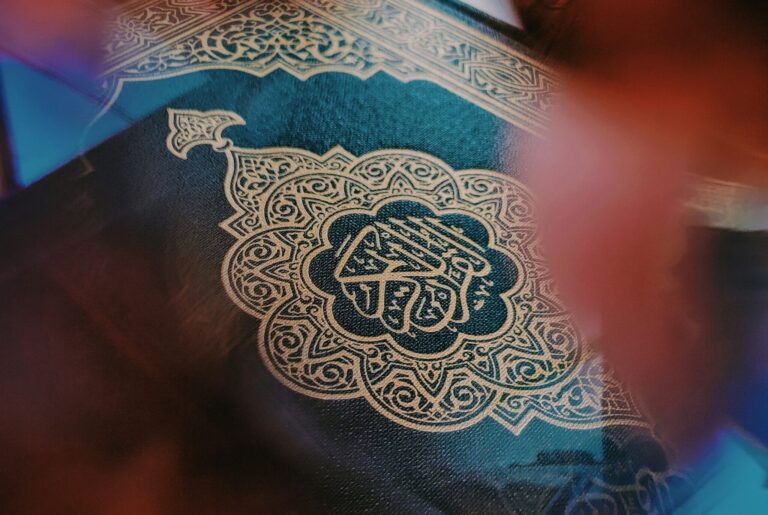Articles
This is what self-respect in Islam looks like.

What is self-respect: Do I matter most?
We often hear the words like “self-respect” and “boundaries”. These terms are words that ought to be used in its proper place, and is indeed very important in many scenarios for everyone. However, if misused, one may fall into the trap of thinking of only himself and his own benefit, so much so that it could potentially lead to neglecting others and an inflated sense of ego. This is where it is crucial to understand what self-respect in Islam is and what it should lead to.
Start by understanding that the essence of the human being is that he is created by Allah SWT for the sole purpose of worship and the bulk of his decisions; in taking care of himself should always be back to serve Allah SWT in the best of manners. Allah SWT says in the Qur’an:
“I did not create jinn and humans except to worship Me.”
(Surah Ad-Dhariyat Verse 56)
Self-respect as a Muslim is in piety above everything.
Everyone wants to love themselves in some way. Let’s face the reality, we all have at least one trait that we pride ourselves with. Self-respect is associated in knowing what one is worthy of and treating or appreciating oneself accordingly. We must, first and foremost, thank Allah SWT for all the good that we were gifted with in talents, luxury, blessings and strengths. However, if we were to ruminate and think about the core of self-respect and what we should walk towards is truly in piety.
Piety or Taqwa will bring one closer to the pinnacle of self-respect. Piety is a strength like no other, and not only will one earn self-respect within himself, but earn the love and satisfaction of Allah SWT. Allah SWT says in the Qur’an:
“Surely the most noble of you in the sight of Allah is the most righteous among you. Allah is truly All-Knowing, All-Aware.”
(Surah Al-Hujurat Verse 13)
Self-respect is in knowing your worth as a servant.
Self-respect in a positive perspective is where one sees himself as worthy of something, or of a certain capability. This is important in the life of a Muslim, in which one should recognise his or her strengths, not to – in any way – flaunt nor feel superior, but maximise and focus on using those strengths to create and contribute to the greater good of himself and the community. One should not liken confidence to showing off or being pretentious, because confidence is truly a trait that is needed for success.
We must recognise that Allah SWT created us, particularly human beings as the best of creation, and that in itself is an honour that is conferred upon us as human beings. For that, one must always aim to strive to excellence in search of his identity and manifesting self-respect. Allah SWT says in the Qur’an:
“Indeed, We created humans in the best form.”
(Surah At-Tin Verse 4)
Self-respect is humility.
On the topic of confidence, it is a term that gives a sense of honour to a person. This is very much related to the Arabic word called “Izzah” to mean honour. Having honour is absolutely important especially as a believer.
Honour here is in the way a believer presents himself in front of others, how he treats others and how he conducts himself. Honour, more importantly is in having humility in front of others and in front of Allah SWT.
Yes, confidence can and should be coupled with humility in all ways and always. This is how self-respect should look like. Humility, is never bad and brings about goodness to the self, as one realises that he has many things to improve on, causing him to strive further to earn this Izzah, and more importantly the pleasure of Allah SWT. It is mentioned in the Qur’an:
“And do not walk on the earth arrogantly. Surely you can neither crack the earth nor stretch to the height of the mountains.”
(Surah Al-Isra Verse 37)
“‘But honour, power and Glory belong to Allaah, his Messenger (ﷺ), and to the believers.”
(Surah Al-Munafiqun Verse 8)
Self-respect is taking care of yourself according to the boundaries of Islam.
We also see self-respect as a way to recognise that we have a right over our body and that as responsible beings, we must always care for ourselves so that we can do better each there after every rest. The Prophet ﷺ mentions in a sound Hadith:
“Your body has a right over you, your eyes have a right over you and your wife has a right over you.”
(Bukhari)
Ibn Abbas reported: The Messenger of Allah, peace and blessings be upon him, said, “Take advantage of five before five: your youth before your old age, your health before your illness, your riches before your poverty, your free time before your work, and your life before your death.”
(Bayhaqi)
This must be done in moderate levels and within the permissible. It should not lead to indulgence in rest and pleasures of this Earth, for that is what leads to excessiveness and the feeding of one’s desire (nafs).
Self-respect is being selfless and thinking of other than you.
Interestingly, in Islam, the self is always never just about the “I” and the “me” but rather about doing things with others and for others. In Islam, we always remember that others’ happiness is ours and as far as possible, we try our very best to be of service to others and for others. This is what we call to have “Ithaar” or selflessness.
Sometimes, it is the simple joys of helping someone in need that will boost our psychological health, because this is part of being human and what drives us towards happiness and a healthy self. The next time you think about self-respect, remember that being selfless is also self-respect, for it is Islamic, Prophetic and more importantly attuned to our nature as humans. It is mentioned in the saying of the Prophet ﷺ:
On the authority of Abu Huraira (may Allah be pleased with him) from the Prophet (peace and blessings of Allah be upon him) who said, ” Whoever relieves a believer’s distress of the distressful aspects of this world, Allah will rescue him from a difficulty of the difficulties of the Hereafter.
(Muslim)
Self-respect is in knowing you are stronger than the Shaytaan.
Having self-respect is not only in setting ‘boundaries’ from matters that may disturb your mental health or to keep yourself balanced, but it is also to set boundaries with the true enemy, the cursed Shaytaan. Knowing when the Shaytaan is tempting your soul to think, do or say bad things is also an act of self-respect for yourself. Allah SWT mentions in the Qur’an:
“And if an evil suggestion comes to you from Satan, then seek refuge in Allah”
(Surah Al-A’raf Verse 200)
The Shaytaan will do the best he can to tempt us to do evil deeds, which will devalue us in ways that we may also never expect. So keep yourself in check and always be aware of the evil thoughts that come to your mind, and ward them off by converting it into good deeds and acts that will bring the pleasure of Allah SWT. This is true self-respect.
Self-respect is saying No to things that do not benefit you in this Dunya.
To reach the best state of self-respect is to know how to filter your life and the way you make choices in this world. This is mainly in the perspective of the Akhirah, where, if you truly want to manifest self-respect, you need to know your priorities. For example, try your best not to indulge in talk that may lead to unnecessary gossiping or being in the company of people who may cause you to be corrupt. Allah SWT mentions in the Qur’an about the believers when they are encountered with evil talk or falsehood:
“and when they come across falsehood, they pass it by with dignity.”
(Surah Al-Furqan Verse 72)
This verse accurately shows how much dignity is exuded in the way of the believers. The Ayah is part of a longer story, but in sum, the attitude of the believers is that they knew their worth and responsibility towards Allah to choose what is right, and left what does not benefit them with dignity (dignity meaning to show that they did so gracefully and calmly without arrogance nor belligerently.
Self-respect is in manifesting greatness to Allah SWT.
We can never be a self without the will of Allah SWT. Sometimes, we think about ourselves too much that it blinds us to remember that manifesting the greatness of Allah SWT is the highest level of self-respect. When we look at ourselves, our talents and merits, we should only remember that all of these traits are because Allah SWT has gifted them to us. This was the way the Prophets saw themselves and one such example was the Prophet Shuayb AS, as stated in the Qur’an:
“My success comes only through Allah. In Him I trust and to Him I turn.”
(Surah Hud Surah Hud Verse 88)
If the Prophets themselves were the epitome of manifesting such an honour towards themselves by remembering Allah SWT as their sole creator and Master, then what makes us think that we are high and lofty in the way we are? Self-respect is respecting Allah SWT first and foremost and with the best of our capabilities and efforts.
Disclaimer
Support Our Dakwah










